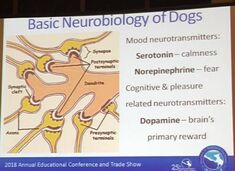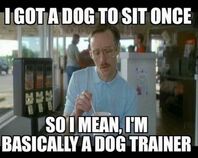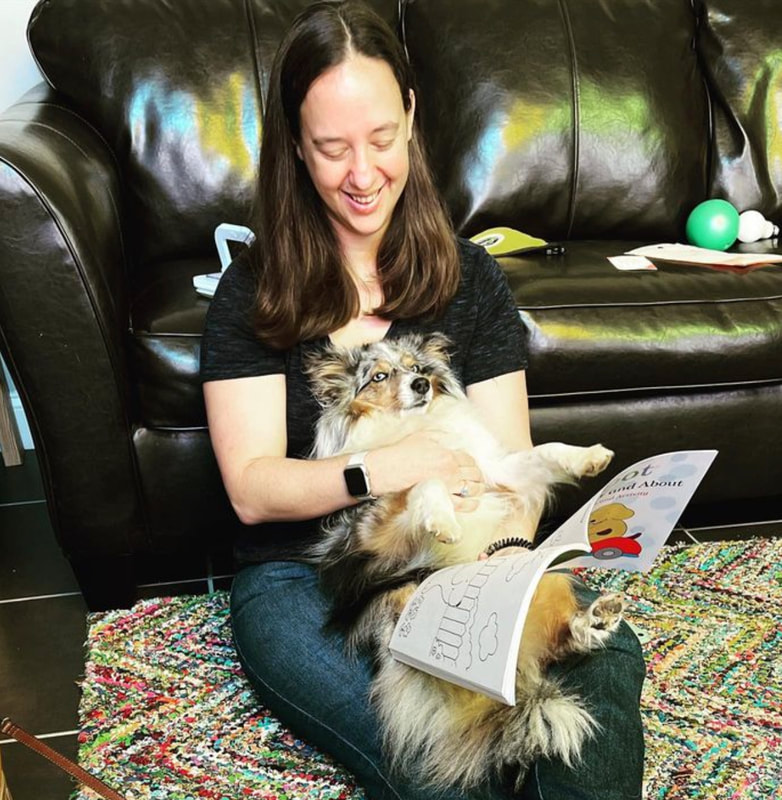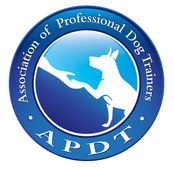 For kids and teachers, the end of the year is quickly approaching! Soon enough they will get out of school and a much-needed summer break from learning. But for me, the school year is just beginning! It’s time for Continuing Education! Continuing education is important in so many professional fields, and dog training is no different. I have a library of books and DVDs to learn more about dog training, not to mention video streaming services and podcasts to keep up with the latest training techniques. But when it comes to continuing education, nothing is as valuable as attending in-person conferences and seminars. I try to attend at least one conference every year (see the About Me page for a list of some of the conferences and seminars I’ve attended). Last October was the fantastic Association of Professional Dog Trainers (APDT) Annual Conference in Memphis, TN, and next month I’m very excited to be attending the International Association of Animal Behavior Consultants (IAABC) Animal Behavior Conference in Houston, TX. Then starting in May I’ll be participating in the 12-week long IAABC Animal Behavior Consulting course. So why does a dog trainer need to worry about continuing education?  Cognition - understanding how dogs think and perceive their world - is one of the newest fields of dog training Cognition - understanding how dogs think and perceive their world - is one of the newest fields of dog training 1. To stay on the cutting edge of training dogs. Science is always changing and teaching us new things about the world, and the same is true in the science of dog training. The basic principles all trainers use come from the field of learning psychology from the 1950s; but a lot has changed over the years when it comes to applying those principles with dogs and other animal species. Most of the training methods I used when I first started my own career are not methods that I usually use today. Through continuing education I can learn new ways of teaching behaviors. This way, if a dog does not respond to one method, or an owner has already tried methods she learned from a previous training class and they’re not working, we have plenty of other new techniques to try.  A slide from one of the advanced learning topics at the APDT conference A slide from one of the advanced learning topics at the APDT conference 2. To stay on the cutting edge of the science of dogs Researchers work with dogs every day, to learn more about how their brains and bodies work. It’s through continuing education that I learned, for example, about the brain chemistry involved in anxiety or aggression and how to treat a dog using that knowledge. I learned about the physical structure of a dog, and how, for example, his legs and back affect how long he can do a sit-stay. I learned about developmental stages of dogs and, for example, the problems associated with bringing a dog home at 5 weeks old vs. 8 weeks old vs. 6 months old. And most importantly, I’m learning all these things directly from the scientists and researchers who spend their professional careers studying them. 3. To geek out with other professionals In a way, dog training can be a lonely job: we could go weeks without meeting up with another professional dog trainer in person. But at professional conferences we can meet up with hundreds of other trainers and talk endlessly about how we handle the unique challenges we have in our jobs. Taking those networking opportunities is not only an important way to help our own clients and dogs, but it gives us contacts to use in the future. As a client, wouldn’t you want your trainer to be consulting with other trainers to give you the best information and advice?  Swag bags from conferences can include new leashes, treats, clickers, and other fun equipment! Swag bags from conferences can include new leashes, treats, clickers, and other fun equipment! 4. To learn about new products Most of the products I use every day and recommend to clients – including everything from the tote bag I use, to the best treats; to leashes, collars, and harnesses; to even future continuing education opportunities – come from other trainers and professionals I have conversations with at conferences and workshops. Many conferences have vendors showing the latest gadgets and dog equipment, and trainers bring their latest discoveries to show off to their friends.  Social media is an important part of any business model these days! Social media is an important part of any business model these days! 5. To learn about running a business Yes, I’m sure most of my clients don’t think of me as a business person, and believe me, I’d rather be working with dogs than filing taxes! The business end of dog training does not come easy for us dog trainers, but without good business practices we wouldn’t be helping very many clients!  Remember - literally anyone can call themselves a dog trainer! Remember - literally anyone can call themselves a dog trainer! The professional field of dog training is not regulated, meaning that literally anyone can call themselves a dog trainer and start charging clients to train their dogs. The first thing I tell anyone looking for a dog trainer to hire, is to ask that person where they learned dog training. A reputable trainer should be able to give you a list of different experiences, courses, internships, and continuing education opportunities that they have participated in. Beware of the trainer who took only one class, or had only one mentor, or worst of all, have only trained their own dog; you wouldn’t hire a teacher just because she taught one child, so don’t hire a dog trainer who doesn’t have experience either!
2 Comments
3/20/2020 07:23:38 pm
There are lots of schools that you can go to this summer, but my favorite would probably be cooking school. I want to try and become a person who can cook well, and that is what I am planning on doing. I already have an understanding of how I will do it, and I want to keep on doing it. I hope that I can be a great cook in the future, it is what I dream about every day.
Reply
Leave a Reply. |
AuthorElizabeth Morgan specializes in training service dogs as the trainer and owner of Alabama Dog Academy. Archives
January 2024
Categories |
|
256-434-1747 (call or text)
[email protected] |
Proudly powered by Weebly



 RSS Feed
RSS Feed


